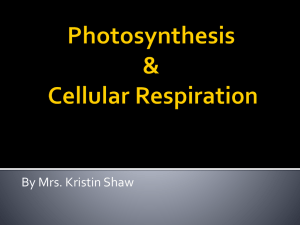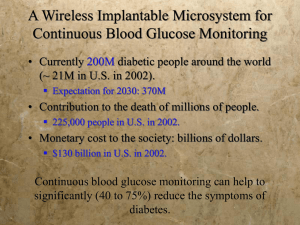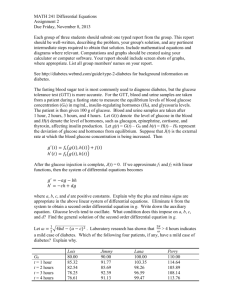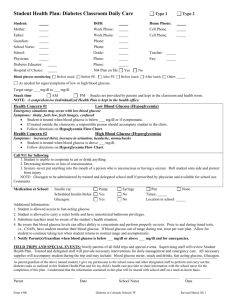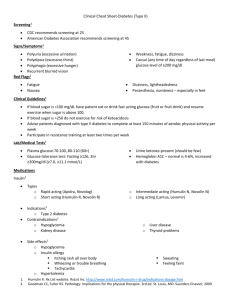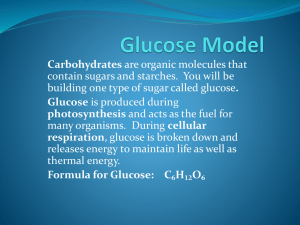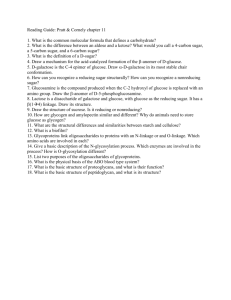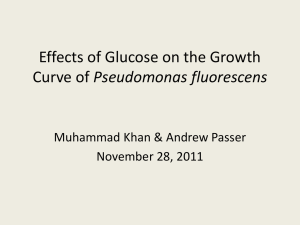Diabetes Emergencies
advertisement
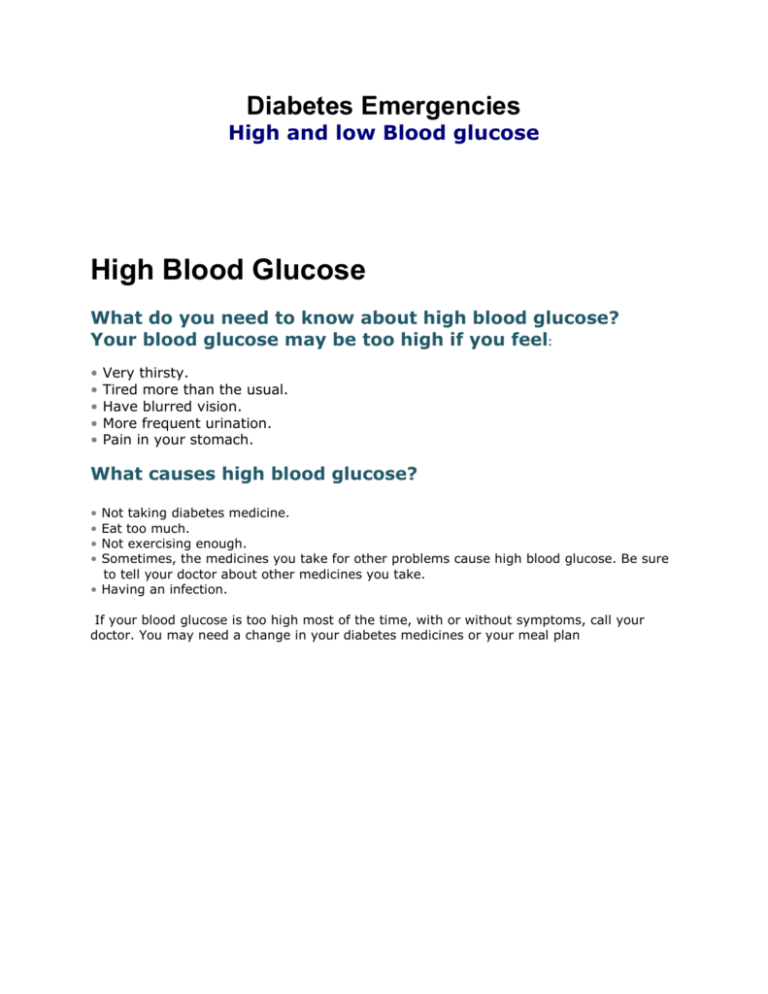
Diabetes Emergencies High and low Blood glucose High Blood Glucose What do you need to know about high blood glucose? Your blood glucose may be too high if you feel: • • • • • Very thirsty. Tired more than the usual. Have blurred vision. More frequent urination. Pain in your stomach. What causes high blood glucose? • • • • Not taking diabetes medicine. Eat too much. Not exercising enough. Sometimes, the medicines you take for other problems cause high blood glucose. Be sure to tell your doctor about other medicines you take. • Having an infection. If your blood glucose is too high most of the time, with or without symptoms, call your doctor. You may need a change in your diabetes medicines or your meal plan Low Blood Glucose What do you need to know about low blood glucose? Your blood glucose may be low if you feel: • • • • • • • • Weak Confused Irritable Hungry Very tired Sweat a lot Headache Shaky If your low blood glucose is not treated, you could faint or have a seizure. Low blood glucose happens if your blood glucose drops below 70 mg/dl. What causes Low blood glucose? • If you take overdose of your diabetes medicine. • Missing or delaying a meal. • Exercising more than usual. • Drinking alcoholic beverages. • Sometimes, medicines you take for other health problems can cause blood glucose to drop. If you have any of the symptoms described above, check your blood glucose. If the level is below 70, have one of these “quick fix” foods right away: • 3 or 4 glucose tablets (5 grams each). • • • • • 1/2 cup of any fruit juice. 1/2 cup of a regular-not diet-soft drink. 5 or 6 pieces of hard candy. 1 tablespoon of sugar or honey. After 15 minutes, check your blood glucose again to make sure your blood glucose > 70 mg/dl. If your blood glucose is still<70 mg/dl, repeat the above steps until your blood glucose reaches > 70. Once your blood glucose is stable, have a snack that contains some starch. • Always carry sugar-containing food with you to use in case of low blood glucose. • Carry your diabetes identification card at all times. If You Use Diabetes Medications: • You can prevent low blood glucose by eating healthy meals at regular times, taking your diabetes medicines as prescribed by the physician, and checking your blood glucose often. • Tell your doctor if you have low blood glucose more often, especially when it happens usually at the same time of the day or night for several times in a row. • Tell your doctor if you have lost consciousness because of low blood glucose. • Ask your doctor about glucagon. Glucagon is a medicine that raises blood glucose. If you lose consciousness from low blood glucose, someone should call the emergency room and give you a glucagon shot. • Make sure to tell your doctor about any other medicines you are taking, because it might affect blood glucose levels.
